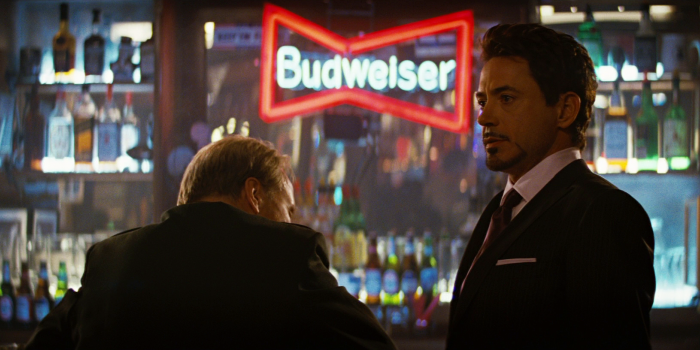
Editor’s Note: The following review is part of our coverage of TIFF’s film series The Wind Will Carry Us: The Films of Abbas Kiarostami. For more information, visit tiff.net and follow TIFF on Twitter at @TIFF_NET.
Simultaneously juggling filming in the busy Tehran streets with in-depth dialogue concerning the state of Iranian gender politics, Abbas Kiarostami’s Ten is more ambitious than its setting would suggest. Simply titled, Ten is a movie that is indeed about the journey rather than the destination, with this structure seeping into the content of the film as well. Following Kiarostami’s The Wind Will Carry Us and ABC Africa, his 2002 release succeeds in many ways, but is not without its downfalls.
Simultaneously juggling filming in the busy Tehran streets with in-depth dialogue concerning the state of Iranian gender politics, Abbas Kiarostami’s Ten is more ambitious than its setting would suggest.
The female driver, unnamed but played by Mania Akbari, pilots a sedan around Tehran with a variety of passengers. Structured over ten sections which vary in length and insight, the driver spends time with her son Amin (Amin Maher), a woman in need of a ride to a place of prayer, a prostitute, and a few other figures. Would the structure not be so cohesive, the setup might feel a bit like a collection of essays or short stories; although the conversations take different routes, all service the same theme with irregular success.

All of this may seem like an easy trick: driving around and directly digging into elements of the complicated Iranian social structure, with a constant rotation of passengers and situations to keep the conversation fresh and lively. Indeed, a screen counter rolls down each of the segments from “10” to “1”, with the transitions making everything in between feel somewhat stilted, as if the film is marking out its pacing in a way a rough cut of a film feels unfinished.
Yet the framing is perhaps the most inhibiting of a truly enrapturing feeling. Whereas Kiarostami’s later films, namely Certified Copy and Like Someone in Love place the camera on the hood of the car, allowing for elaborate reflections of the Italian countryside or the vastness of the Japanese urban jungle, here the cameras are physically inside the car. Although this use of digital technology gives Kiarostami more flexibility, the framing is so tight that there’s no sense that this “interior” approach is bringing us any closer to the conversation. Unlike Jafar Panahi’s Taxi from 2015, which often includes incidents outside the automobile as both important and integral parts of the plot, here the world is physically inside the car, even if many of the conversations verbally form a bleak picture of the culture surrounding them.
. . . with all the ideas that rise to the surface in a terrific script, Ten might just need a little more room to breathe.
By my count, four of the ten segments involve Amin, which is probably why these scenes feel the most developed and also the most informative to what Kiarostami is seemingly trying to say. Indeed, in the final segments in which Amin appears, his father drops him off from across the street, lending the boy to his mother for short, allotted periods of time. The power play here is blatant, although relatable no matter what culture we’re talking about-the father has won custody during the divorce, and Amin’s mother must respect her ex-husband’s plans. Yet when Amin gets in the car, his demands become more concrete and also more harshly delivered. Although it’s his mother’s time with the boy, she drives him to the pool, to his grandmother’s house, or wherever else he wishes. “This is for the best” everyone seems to tell her, and she’s largely powerless to disagree, letting her son develop “as a man” with his father. Patriarchy can be overt or clandestine, but it can be regressive either way.
Ten has a difficult time accentuating its ideas into a full-fledged success, but that hardly makes it a poor film. Instead we’re left with a collection of short films, each of which initiate the dialogue on family and the social structure of turn-of-the-century Iran. It’s hard to fault Kiarostami for false advertising (the film refers to the number of segments included), and his innovative structure for a feature is tricky to perfect. Yet with all the ideas that rise to the surface in a terrific script, Ten might just need a little more room to breathe.
Ten has a difficult time accentuating its ideas into a full-fledged success, but that hardly makes it a poor film. Instead we’re left with a collection of short films, each of which initiate the dialogue on family and the social structure of turn-of-the-century Iran.



